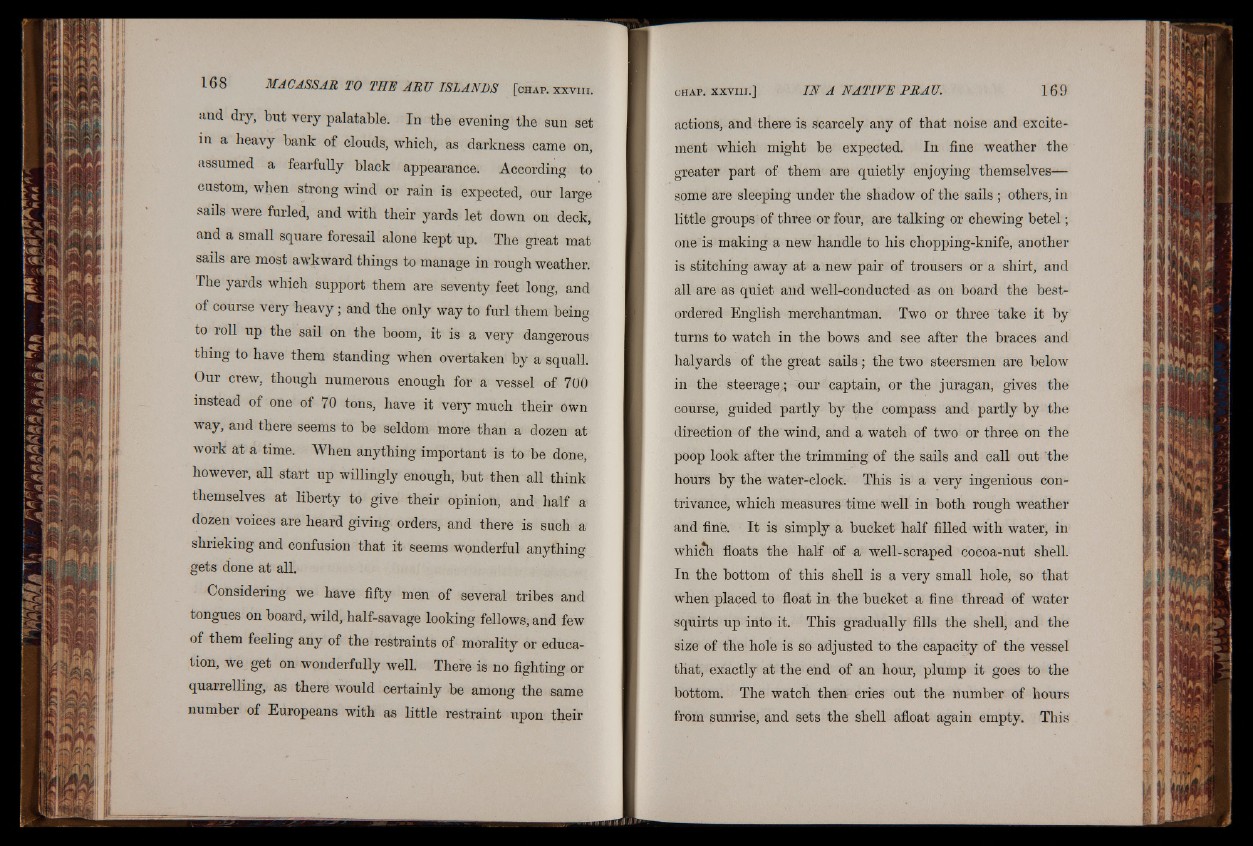
and dry, but very palatable. In the evening the sun set
in a heavy bank of clouds, which, as darkness came on,
assumed a fearfully black appearance. According to
custom, when strong wind or rain is expected, our large
sails were furled, and with their yards let down on deck,
and a small square foresail alone kept up. The great mat
sails are most awkward things to manage in rough weather.
The yards which support them are seventy feet long, and
of course very heavy; and the only way to furl them being
to roll up the sail on the boom, it is a very dangerous
thing to have them standing when overtaken by a squall.
Our crew, though numerous enough for a vessel of 700
instead of one of 70 tons, have it very much their own
way, and there seems to be seldom more than a dozen at
work at a time. When anything important is to be done,
however, all start up willingly enough, but then all think
themselves at liberty to give their opinion, and half a
dozen voices are heard giving orders, and there is such a
shrieking and confusion that it seems wonderful anything
gets done at all.
Considering we have fifty men of several tribes and
tongues on board, wild, half-savage looking fellows, and few
of them feeling any of the restraints of morality or education,
we get on wonderfully well. There is no fighting or
quarrelling, as there would certainly be among the same
number of Europeans with as little restraint upon their
actions, and there is scarcely any of that noise and excitement
which might be expected. In fine weather the
greater part of them are quietly enjoying themselves—
some are sleeping under the shadow of the sails; others, in
little groups of three or four, are talking or chewing betel;
one is making a new handle to his chopping-knife, another
is stitching away at a new pair of trousers or a shirt, and
all are as quiet and well-conducted as on board the best-
ordered English merchantman. Two or three take it by
turns to watch in the bows and see after the braces and
halyards of the great sails; the two steersmen are below
in the steerage.; our captain, or the juragan, gives the
course, guided partly by the compass and partly by the
direction of the wind, and a watch of two or three on the
poop look after the trimming of the sails and call out the
hours by the water-clock. This is a very ingenious contrivance,
which measures time well in both rough weather
and fine. It is simply a bucket half filled with water, in
which floats the half of a well-scraped cocoa-nut shell.
In the bottom of this shell is a very small hole, so that
when placed to float in the bucket a fine thread of water
squirts up into it. This gradually fills the shell, and the
size of the hole is so adjusted to the capacity of the vessel
that, exactly at the end of an hour, plump it goes to the
bottom. The watch then cries out the number of hours
from sunrise, and sets the shell afloat again empty. This